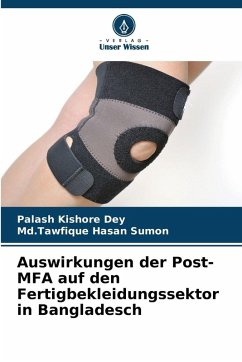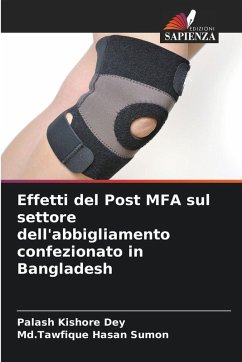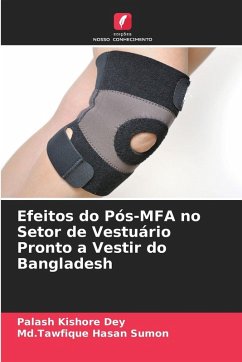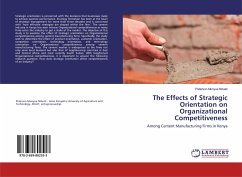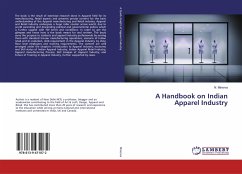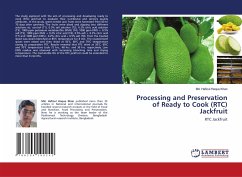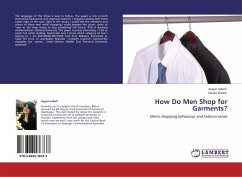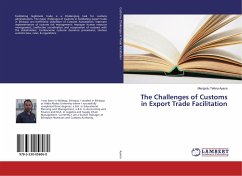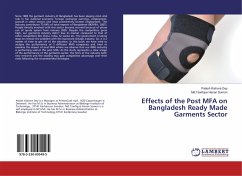
Effects of the Post MFA on Bangladesh Ready Made Garments Sector
Versandkostenfrei!
Versandfertig in 6-10 Tagen
33,99 €
inkl. MwSt.

PAYBACK Punkte
17 °P sammeln!
Since 1983 the garment industry of Bangladesh has been playing most vital role in her national economy: foreign exchange earnings, employment, growth in other sectors and most prominently women employment. This industry contributes 75.64% of total exports of Bangladesh (BGMEA, 2007). People directly involved with this sector became worried because of phase out of quota system from January 2005. Despite the competition grew high, our garments industry didn't lose its market compared to that of other competitors like China, India, Sri Lanka etc. The government is taking steps to remove the probl...
Since 1983 the garment industry of Bangladesh has been playing most vital role in her national economy: foreign exchange earnings, employment, growth in other sectors and most prominently women employment. This industry contributes 75.64% of total exports of Bangladesh (BGMEA, 2007). People directly involved with this sector became worried because of phase out of quota system from January 2005. Despite the competition grew high, our garments industry didn't lose its market compared to that of other competitors like China, India, Sri Lanka etc. The government is taking steps to remove the problem with the backward linkage industry. So, it is a matter of time to get rid of the situation. In this book we have tried to analyze the performance of 5 different RMG companies and tried to examine the impact of post MFA where we observe that our RMG industry is performing well at the post MFA. As the study represents a clear image of the performance of the garments sector, the firms of theindustry both new entrants and the existing may gain competitive advantage over their rivals following the recommended strategies.



